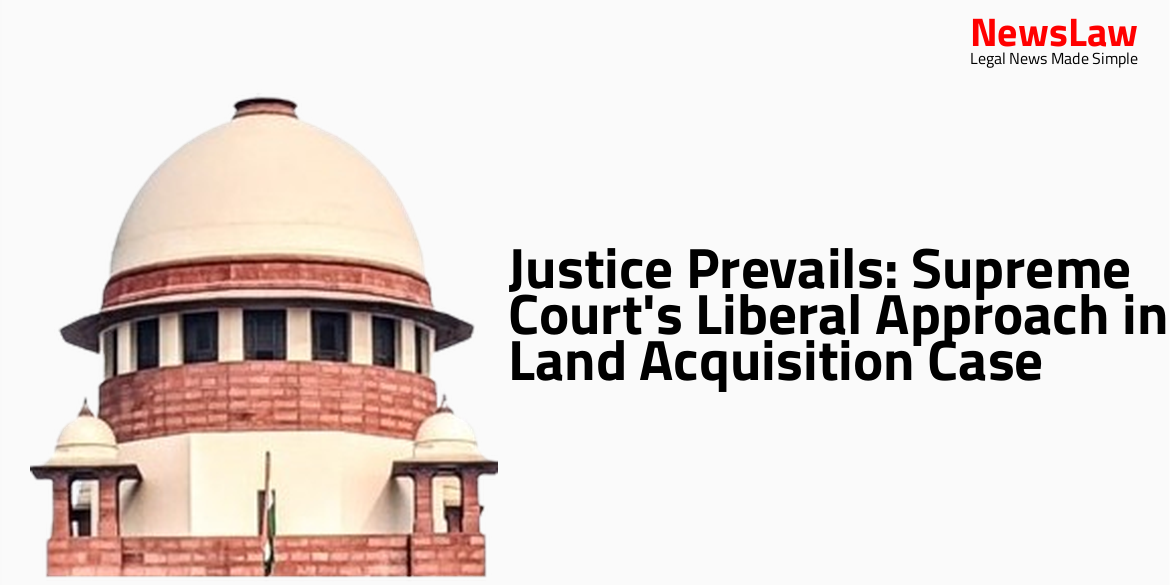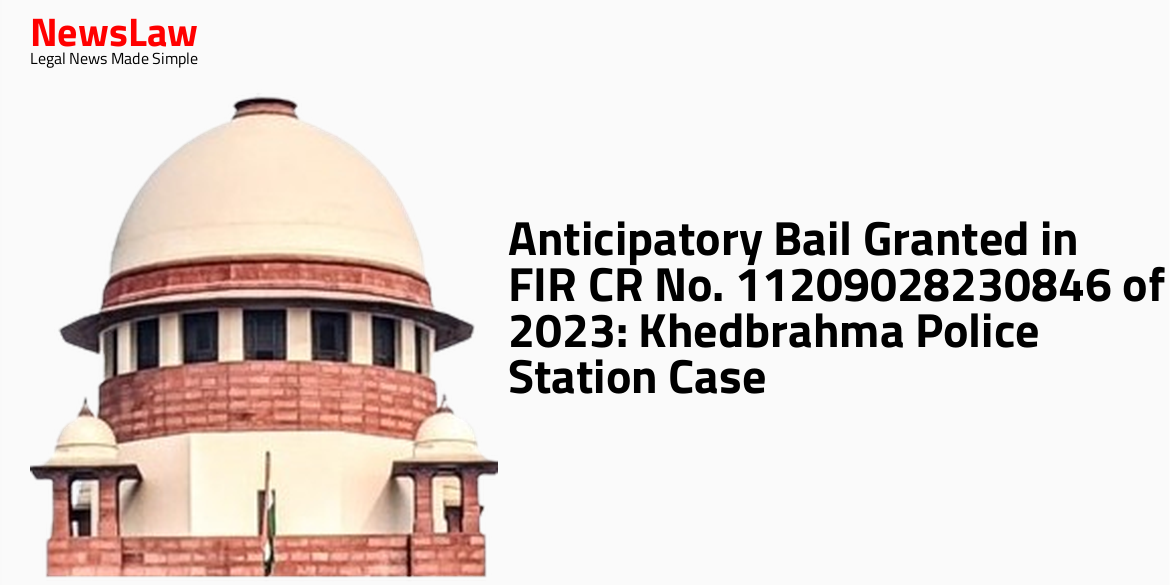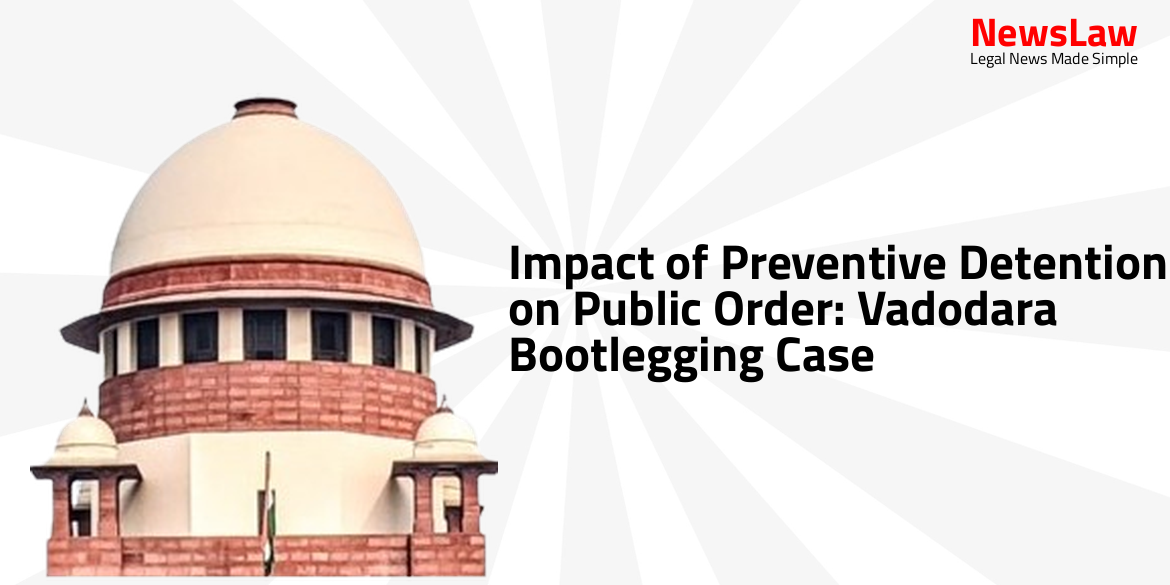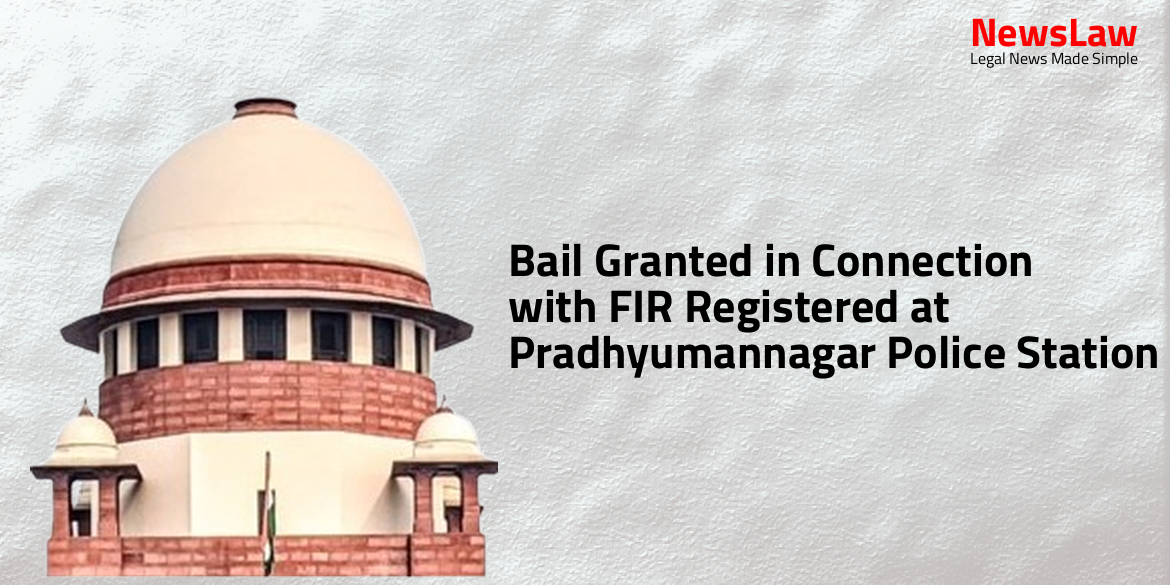In a significant ruling by the Supreme Court of India, a liberal approach was taken in a land acquisition case involving the applicants and the State. The Court acknowledged the challenges faced by the applicants, who were described as not very literate and poor agriculturists, in filing their appeal within the limitation period. Emphasizing on just compensation and accessibility to legal remedies, the Court’s decision highlights the importance of equitable outcomes in legal matters.
Facts
- Present First Appeal arising out of Land Reference Case No.193 of 2005.
- Delay of 1432 days in preferring the First Appeal.
- Application under Section 5 of the Limitation Act, 1963 filed to condone the delay.
- Reasons for delay stated in the application.
Arguments
- The applicants were not aware of the procedure of the Court of law to file an Appeal within limitation.
- The applicants are described as not very literate and poor agriculturists.
- Reference is made to the decision of the Hon’ble Supreme Court in the case of K. Subbarayadu & Ors vs The Special Deputy Collector, emphasizing on waiving the right to claim interest upon enhanced compensation due to delay.
- The application is vehemently opposed by the learned Assistant Government Pleader for respondent-State based on insufficient explanation for the delay.
- Citing the decisions of the Hon’ble Apex Court in the cases of Collector, Land Acquisition, Anantnag and Dhiraj Singh vs. State of Haryana and others.
- The Collector, Land Acquisition, Anantnag case highlighted that refusing to condone delay can potentially result in a meritorious matter being thrown out at the very threshold, leading to the defeat of the cause of justice.
- Delay should be considered in a rational, pragmatic manner
- Substantial justice should be preferred over technical considerations
- No presumption that delay is deliberate or due to negligence
- Litigants do not benefit from delay and may face risks
- Explanation for each day’s delay is required
- Condoning delay may result in a case being decided on merits after hearing both parties
Analysis
- Judiciary is respected for its ability to remove injustice, not legalize it on technical grounds.
- Villagers in India are generally illiterate and not familiar with legal intricacies.
- Court acknowledges that illiteracy, poverty, and ignorance may prevent landowners from seeking legal intervention.
- Decision to grant enhanced compensation even for those who have not filed special leave petitions.
- Liberal approach towards condonation of delay in filing appeals, as seen in the case of K. Subbarayudu.
- Delay of 1432 days in filing the First Appeal to be considered in light of the circumstances.
- Courts should adopt a liberal approach in acquisition matters for just compensation, considering the situation of affected parties.
- Affected persons in courts are usually guided by their covillagers or advocates for redressal of grievances.
- Affidavits filed for condonation of delay are usually drafted by advocates based on incomplete information provided by affected persons.
Decision
- The Civil Application is allowed.
- The Rule is made absolute.
- Claimants may not claim interest upon enhanced compensation for any delay.
Case Title: VIJYABEN WD/O NANALAL VAISHNAVI Vs. STATE OF GJARAT
Case Number: R/CA/2009/2024



